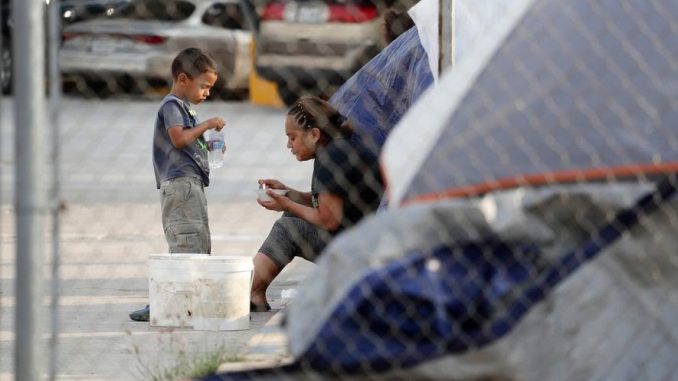
The Department of Homeland Security’s citizenship agency announced Friday it is streamlining the way migrants can apply for a discount on their immigration fees, saying that the old method unfairly gave an advantage to people living in some states.
U.S. Citizenship and Immigration Services will no longer accept a migrant’s use of a state welfare program as evidence someone is poor enough to qualify for a fee waiver, because the states vary too widely in their eligibility.
Instead, applicants will have to prove their incomes are less than 150% of the federal poverty level or they’ll have to make a convincing argument that they are a hardship case.
“The revised fee waiver process will improve the integrity of the program and the quality and consistency of fee waiver approvals going forward,” said Ken Cuccinelli, the agency’s acting director.
USCIS is a fee-based agency, with more than 95% of its $4.7 billion annual budget coming from the prices charged for everything from worker visas to citizenship applications. The philosophy is that immigrants should pay their own way.
An exception is made for the indigent, who have been able to apply for a fee waiver, using one of the three categories of income, use of a means-tested welfare program, or proving hardship.
The new rules eliminate the welfare program avenue.
The agency doled out nearly $300 million in fee waivers in fiscal 2018, or 6% of its budget. Most of those waivers were granted under the soon-to-be-eliminated welfare program test.
But the agency said many of those people could qualify under the hardship or poverty level tests, so it’s not clear whether there will be a major drop in the number of waivers granted.
The agency said, though, that allowing a patchwork of state laws to determine who gets a waiver is no way to run a national program. For example, someone may qualify for food stamps in California but not in New Mexico, meaning that if that person were an immigrant applicant he could get a waiver if he lived in California, but not if he lived in New Mexico.
“It’s a very unfair criterion, we think, and it’s very hard to administer,” an agency official told The Washington Times.
The new policy takes effect for applications filed Dec. 2 and beyond.
Also part of the new policy is a requirement that anyone applying for a waiver fill out the correct form.
Up to now, applicants had a choice of filling out the form or writing a letter. In each case, they were supposed to send proof.
The USCIS official told The Times they don’t expect the new form requirement to affect who is eligible to apply. Someone applying for an immigration benefit is already filling out another application form anyway.
*story by Washington Times